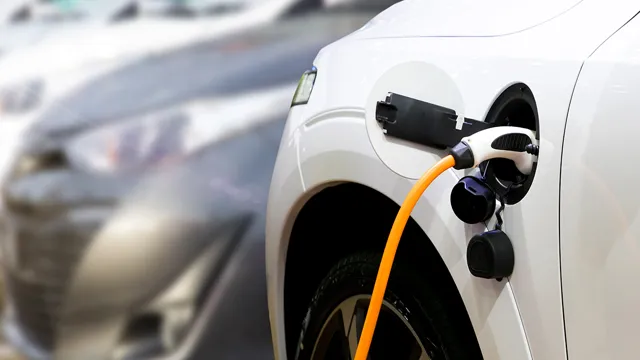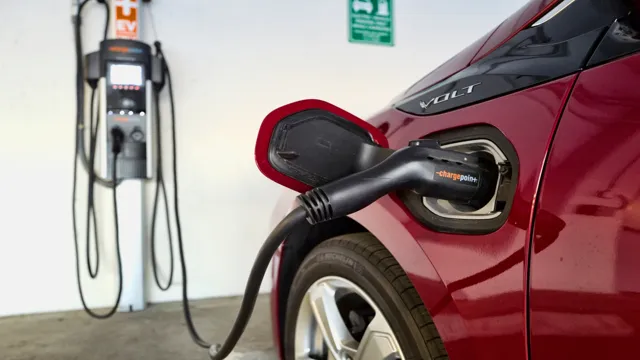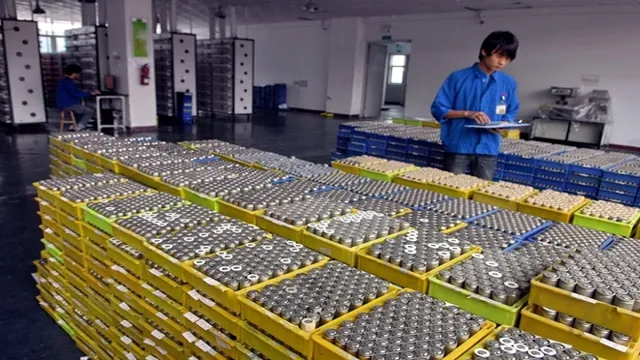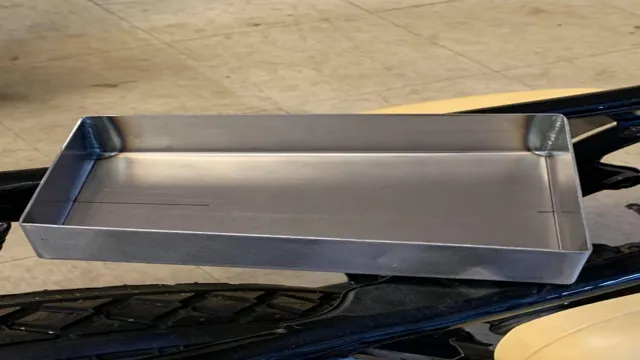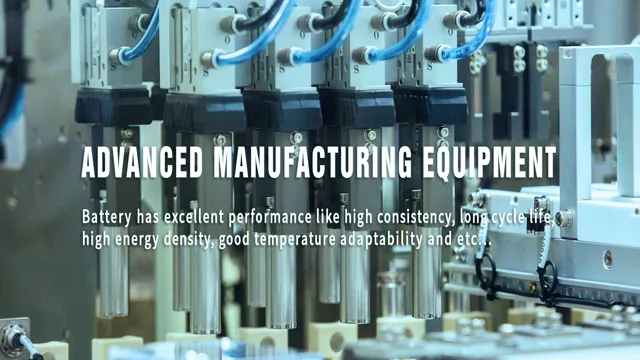Revolutionizing Sustainability: The Promise of Reusing Electric Car Batteries
Electric cars are the future of transportation, and without a doubt, their batteries are the cornerstone of their efficiency and sustainability. However, many people don’t realize that electric car batteries are designed to last much longer than the vehicles themselves. As electric cars become more and more popular, there is a growing concern about the proper disposal and reuse of these batteries.
Nevertheless, new technologies and innovative ideas have led to sustainable reuse options that benefit both the environment and the economy. In this blog post, we will explore the exciting ways in which electric car batteries can be repurposed, recycled, and reused to create a cleaner, healthier, and more energy-efficient world. So, fasten your seatbelts, because we’re about to take a ride into the fascinating world of electric car batteries!
Battery Reuse: An Eco-Friendly Solution
Electric car batteries are being repurposed to create an eco-friendly solution to their waste. As electric vehicle production continues to increase, so does the need to find sustainable ways to dispose of their batteries. Instead of just disposing of these batteries when they no longer function at full capacity, they can be reused for purposes such as storing renewable energy.
This creates a circular economy where harmful waste is minimized, and valuable resources are repurposed and reused. Reusing electric car batteries as energy storage can lower the costs of using renewable energy, making it a more cost-effective and efficient solution. Additionally, it provides a secondary market for these batteries, making them more valuable and further incentivizing their reuse.
By repurposing electric car batteries, we can minimize waste and create a more sustainable future.
Current State of Electric Car Batteries
The current state of electric car batteries is a hot topic in the automotive industry, especially when it comes to battery reuse. As more people are turning to electric vehicles to reduce their carbon footprint, questions arise about what to do with used batteries. Battery reuse presents an eco-friendly solution by repurposing old batteries for new applications, such as energy storage for homes or businesses.
This not only prevents batteries from ending up in landfills but also extends the life of batteries, making them more cost-effective. However, there are challenges to battery reuse, such as identifying which batteries are suitable for reuse and ensuring that they are safe. Despite these obstacles, battery reuse is an exciting development in the electric vehicle industry and a step towards a more sustainable future.
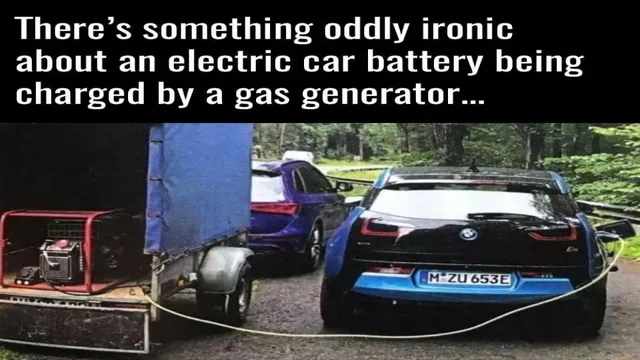
Stages of Battery Reuse
Battery reuse is a fantastic solution for reducing the amount of waste that ends up in our landfills. The process of reusing batteries starts with inspecting the battery to ensure it’s still safe for use. If the battery passes this test, it can be cleaned and reconditioned, bringing it back to its former glory.
Once renewed, the battery can be reused for various purposes, such as powering solar panels or storing energy from wind turbines. By opting to use reused batteries instead of purchasing new ones, you’re not only helping to keep waste out of landfills, but you’re also reducing the demand for new batteries to be produced. With battery reuse, you can do your part in creating a more eco-friendly future by embracing the circular economy and reducing waste.
Benefits of Battery Reuse
Reusing electric car batteries is a smart way to maximize the lifespan of these highly expensive components. These batteries are designed to last for several years even after they have been retired from an electric vehicle. By repurposing used batteries, we can significantly reduce our carbon footprint, save money, and cut down on waste.
Electric car battery reuse has several benefits, including reducing the demand on raw materials, lowering manufacturing costs, and extending the useful life of these batteries. By creating a market for used batteries, we can develop a circular economy, reducing waste and maximizing resources. Furthermore, as the demand for electric vehicles grows, reusing batteries can help reduce the overall cost of ownership, making electric vehicles a more affordable option for consumers.
Indeed, electric car battery reuse offers a sustainable and cost-effective solution for extending the life of these valuable energy storage units.
Reduction in Waste Production
Battery reuse can have a significant impact on reducing waste and promoting sustainability. By reusing batteries instead of discarding them after use, we can reduce the amount of waste that ends up in landfills. This not only helps to conserve natural resources but also reduces the negative environmental impact of waste disposal.
Additionally, reusing batteries can also save on the energy required to produce new batteries, further reducing carbon emissions and promoting a more sustainable future. The benefits of battery reuse go beyond just environmental sustainability. It can also be a cost-effective solution for individuals or businesses, as reusing batteries can save money on purchasing new batteries.
Thus, promoting the reuse of batteries can have a positive impact on both the environment and the economy. By bringing small modifications in our daily routine like reusing batteries, we can significantly contribute to a more sustainable future.
Lower Production Costs
One of the biggest benefits of battery reuse is the potential for significantly lower production costs. By repurposing used batteries, companies can reduce their reliance on raw materials and save money on the manufacturing process. This is because recycling batteries requires less energy and resources than producing new ones from scratch.
Additionally, reusing batteries helps to minimize waste and reduce the environmental impact of their production. Overall, the cost savings and environmental benefits of battery reuse make it an attractive option for companies looking to be more sustainable without sacrificing performance or efficiency. So, next time you’re considering purchasing a new battery, think about the potential benefits of reusing an old one instead!
Decreased Carbon Emissions
Battery reuse has many benefits, including decreased carbon emissions. By reusing batteries instead of creating new ones, fewer resources are needed, reducing the amount of carbon released during the manufacturing process. Additionally, reusing batteries reduces the number of batteries that end up in landfills, where they can release harmful chemicals into the environment.
According to a study conducted by the Argonne National Laboratory, battery reuse reduced greenhouse gas emissions by up to 88%. This reduction in emissions can have a significant impact on climate change. By embracing battery reuse, we can take a step towards a more sustainable future.
Applications of Reused Batteries
Electric car batteries are expensive to replace, and their final stages of life involve hazardous materials that can harm the environment. However, reusing these batteries presents a unique solution for both issues. Used electric car batteries can be repurposed to offer energy storage solutions to homes, businesses, and even the power grid.
These “second-life” applications involve integrating the batteries with solar power systems to store excess energy for later use. In fact, electric car batteries can have up to 70% of their original capacity remaining after retirement from vehicles. By utilizing these batteries in stationary applications, we can reduce the burden on the environment and extend the lifespan of useful products.
Moreover, repurposing these batteries not only offers a sustainable solution but also reduces their disposal costs. It’s a win-win situation that promotes sustainable living, protects the environment, and saves money.
Energy Storage Systems
Energy Storage Systems It might surprise you to know that discarded batteries can still hold up to 80% of their original capacity, making them ideal for use in Energy Storage Systems (ESS). The applications of reused batteries in ESS are numerous and varied, from stabilizing a power grid during times of high demand to storing energy generated by renewable sources such as solar and wind. In addition to being cost-effective, reusing batteries for ESS can also benefit the environment by reducing the need for new battery production and disposal.
With the growing demand for renewable energy, ESS using reused batteries are becoming more popular and increasingly important in the fight against climate change. By transforming old batteries into valuable assets for ESS, we can contribute to a more sustainable future.
Grid Stabilization
Grid stabilization is an essential element in ensuring the reliable and consistent flow of electricity to homes and businesses. In recent years, reused batteries have emerged as an ideal solution to this problem. These batteries, which are no longer suitable for use in electric vehicles and other applications, are still capable of providing a significant amount of energy storage capacity.
By connecting these batteries to the grid, they can help to balance the intermittent energy supply from renewable sources and manage peak demand periods. This is particularly useful in areas where energy infrastructure is limited or unreliable. Additionally, the use of reused batteries helps to extend the life of the batteries, reducing the amount of waste generated and potentially decreasing the cost of new battery production.
Overall, the application of reused batteries for grid stabilization is a win-win solution that benefits both the environment and the economy.
Future of Battery Reuse
The future of electric car battery reuse is looking bright, as more and more manufacturers are exploring ways to extend the life span of these powerful but expensive components. Rather than simply discarding used electric vehicle batteries, they can be repurposed for a variety of applications, such as in renewable energy storage systems or even as backup power for homes and offices. With the continued growth of the electric vehicle market, there will also be an increasing demand for battery recycling and recovery technologies that can extract valuable materials such as lithium and cobalt from spent batteries.
This not only helps to minimize waste but also reduces the need for mining new materials, further benefiting the environment. As battery reuse and recycling technologies continue to evolve, the electric vehicle industry is set to become increasingly sustainable and eco-friendly, helping to pave the way for a more sustainable future.
Conclusion
In conclusion, reusing electric car batteries is a smart and sustainable way to reduce waste and extend the lifespan of these innovative energy sources. By repurposing these batteries for other purposes, we can not only reduce our environmental impact but also save money while continuing to enjoy the many benefits of electric cars. So next time you think about upgrading your ride, consider giving your electric car battery a new lease on life – who knows where its next adventure might take it!”
FAQs
How are electric car batteries being reused?
Electric car batteries are being reused by repurposing them for other applications such as stationary energy storage systems, renewable energy backup systems, and charging stations for electric vehicles.
Can used electric car batteries be recycled?
Yes, used electric car batteries can be recycled to recover valuable metals like cobalt, nickel, and lithium.
How long do electric car batteries last?
The lifespan of electric car batteries varies depending on several factors such as usage, climate, and battery chemistry. Generally, they can last from 8 to 10 years or more.
What is the cost of replacing an electric car battery?
The cost of replacing an electric car battery varies depending on the make and model of the car. On average, it can range from $3,000 to $7,000 or more. However, some car manufacturers offer battery replacement programs with discounted prices.

